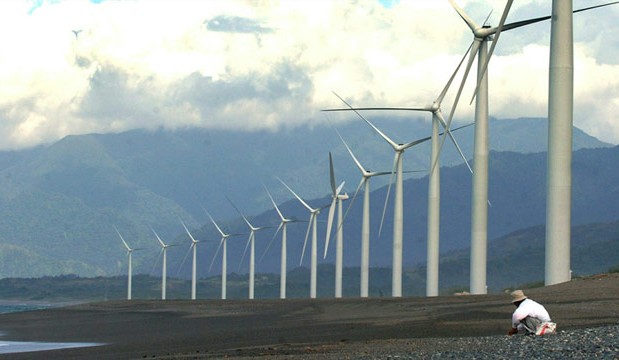What happens to the demand and supply of green jobs. Report Ft

To make the green transition palatable, political leaders emphasize a boom in green jobs. But will it really be like this? The Financial Times article
There is an iron law of politics in the age of climate change: whenever you talk about your plans to reach net zero you must also talk about jobs, preferably a staggering number of jobs, ideally with terms like “well paid”, “blue collar” or “heartlands”. British Opposition leader Keir Starmer followed suit on Monday, pledging that his party's green policies would create half a million "good" jobs. Writes the Financial Times .
It's easy to see why political leaders are emphasizing a boom in green jobs. It's an obvious way to excite or appease voters who might be upset – or even hostile – by your plans to decarbonise the economy. But, so far at least, green jobs in the UK don't seem to be growing at all.
There are different ways to define what makes a job “green,” but none of them show “massive growth over time,” says Anna Valero, a senior policy fellow at the London School of Economics. Innovation agency Nesta, which has collected job postings on the Internet, found that the number of green jobs "doesn't appear to have increased" in recent years. “There's so much interest in green jobs and everyone wants them… [but] they don't seem to materialize,” says Andrew Sissons of Nesta.
A report by the think tank Resolution Foundation last year said there had been “little change in the relative size of green and brown jobs” over the past decade, with “little net growth” in green jobs driven mainly by from professional roles such as marketing directors.
Are there no green jobs, or are there no workers?
What's going on? Is there a lack of demand from employers and consumers, or a lack of supply of workers? In many cases, it is both. Consider one green job: heat pump engineers. There are only about 3,000 qualified heat pump engineers in the country. Nesta calculates it will take another 5,000-7,000 each year if the UK is to meet the government's target of 600,000 heat pump installations per year by 2028.
But policymakers have not sent decisive signals to the market to support this goal. They've held back on whether hydrogen may be a different option, which creates uncertainty about future demand. And two-thirds of new homes in England are still connected to the gas grid, according to a review of the government's plans to achieve net zero.
Meanwhile, the nation's gas engineers – many of whom are sole traders in their 50s – are busy installing gas boilers, which are simpler and for which there is still high demand. Sissons says the heat pump training course for gas technicians only takes a few days, but it still takes time away from earnings, and they're not sure how much work they'll get afterward. Young people starting from scratch, on the other hand, face a convoluted training path.
A three-year apprenticeship as a "low-carbon heating technician", which would be easier, is not yet "ready for delivery".
All of this means that when a homeowner wants to have a heat pump installed, they sometimes give up because they can't find the workers to do it. Lack of demand hurts supply and lack of supply hurts demand.
Incentives for retraining are weak
The problem of weak incentives to switch to green jobs also applies to other sectors. A study released this year by the LSE's Grantham Research Institute found that 'low carbon' job postings require higher skills than similar occupations, but are not necessarily better paid. For an oil and gas industry worker, for example, it may not make financial sense to transition into a role in renewable energy, at least not right now. “The lack of a positive wage premium in recent years, despite these jobs having higher skill requirements, is problematic in attracting workers to low-carbon jobs,” the study concludes.
As the shortage of HGV drivers demonstrated a few years ago, these problems can be solved with the right market incentives and sufficient political will. When employers raised the wages of truck drivers and the government offered to cover the costs of training, the shortage soon eased.
According to Valero, the Biden administration's Inflation Reduction Act in the United States is equally decisive: it is intended to stimulate demand for clean energy projects and "to give markets and workers the signal that this is a big deal, for which it makes sense to move on to these jobs”.
The risk of pushing too hard, of course, is to create bottlenecks and inflation. But as the UK demonstrates, the risk of pushing too softly is that nothing happens at all.
(Extract from the eprcommunication review)
This is a machine translation from Italian language of a post published on Start Magazine at the URL https://www.startmag.it/economia/lavori-verdi-domanda-offerta/ on Sat, 24 Jun 2023 05:46:49 +0000.
